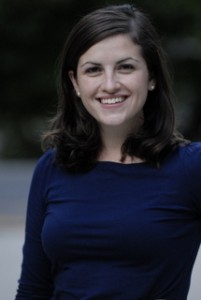Politician, railroad magnate, founder of Lehigh — Asa Packer was quite the renaissance man. This Friday, we honor him and his legacy at Founder’s Day.
Founder’s Day is one of my favorite Lehigh traditions because it honors what our university stands for — an education that trains in both the sciences and humanities, a university that attracts and creates leaders and a campus that connects its values to modern day. I have been to Founder’s Day each year, and I always get chills when administrators, trustees, students, faculty, staff and guests sing the Alma Mater together.
In honor of Founder’s Day, I thought I would find out more about our illustrious founder.
Most of the information that I found comes from the book “Lehigh University: A History of Education in Engineering, Business, and the Human Condition” by W. Ross Yates. I felt like Hermione Granger checking out “Hogwarts, A History” when I found it in FML last week.
Asa Packer was originally from Mystic, Connecticut, but moved to Pennsylvania (by mode of transportation of walking) when he was 17. He worked as a carpenter and canal boat operator before thinking about building a railroad that would could move coal from the Lehigh Valley to Philadelphia and New York. He was living in Mauch Chuck, Pennsylvania, at the time, now named Jim Thorpe, with his wife, Sarah, and children Lucy, Mary Hannah, Robert Asa, Harry Eldred and Marian.
He built the railroad and also served in the House of Representatives. His reputation grew as he became involved in the railroad industry and politics. And in 1864, he decided to give $500,000 — the largest to an education institution at the time — to found a university.
Ironically, it was rumored that Packer was considering giving the money to Lafayette because they were in dire financial problems at the time. However, this was not true because Packer had told his friend Rev. William Bacon Stevens earlier that he wanted to create his own university.
The site that Packer chose for Lehigh was not within the limits of South Bethlehem at the time. Packer Avenue, which was a dirt road at the time, was the geographical distinction between South Bethlehem and Saucon Township. Packer owned the land that lay south of Packer Avenue — “South Mountain,” and distinguished 57 acres of it for use for the university.
Asa Packer was not involved in every aspect of the planning of the university. He was in Europe for the first three meetings of the Board of Trustees, where decisions about the seal, name of the university and selection of the architect for Packer Hall (later the University Center) were all made.
Packer was involved in the goings of Lehigh in its beginning years, but also ensured that the Board of Trustees and senior leadership would have continuity and stability. His son, Harry, and son-in-law, G. B. Linderman, were members of the Board of Trustees. Linderman’s wife was Asa’s daughter Lucy, and when Lucy died prematurely of pneumonia, her father gave the funds to create the first library in her honor.
Asa Packer died on May 17, 1879. The first Founders Day was celebrated that same year on October 9. The faculty proposed the idea, and the day included the unveiling of a portrait of Asa Packer, march and ceremony in the chapel in Packer Hall followed by contests among the students and fireworks.
135 years later, it is really cool that we still celebrate Founder’s Day in the same way. The remembrance of where our university has come from, and positive thoughts on where we are headed, in the ceremony always remind me of the bigger idea and force that Lehigh is. The celebration on the STEPS lawn with the Marching 97, cheerleaders, faculty, administrators, students and friends is a more casual reminder of the bonds of the Lehigh family, and almost a preview of spirit week a month later.
I hope that, all of these years later, Asa Packer is proud of the university he has created.






Comment policy
Comments posted to The Brown and White website are reviewed by a moderator before being approved. Incendiary speech or harassing language, including comments targeted at individuals, may be deemed unacceptable and not published. Spam and other soliciting will also be declined.
The Brown and White also reserves the right to not publish entirely anonymous comments.